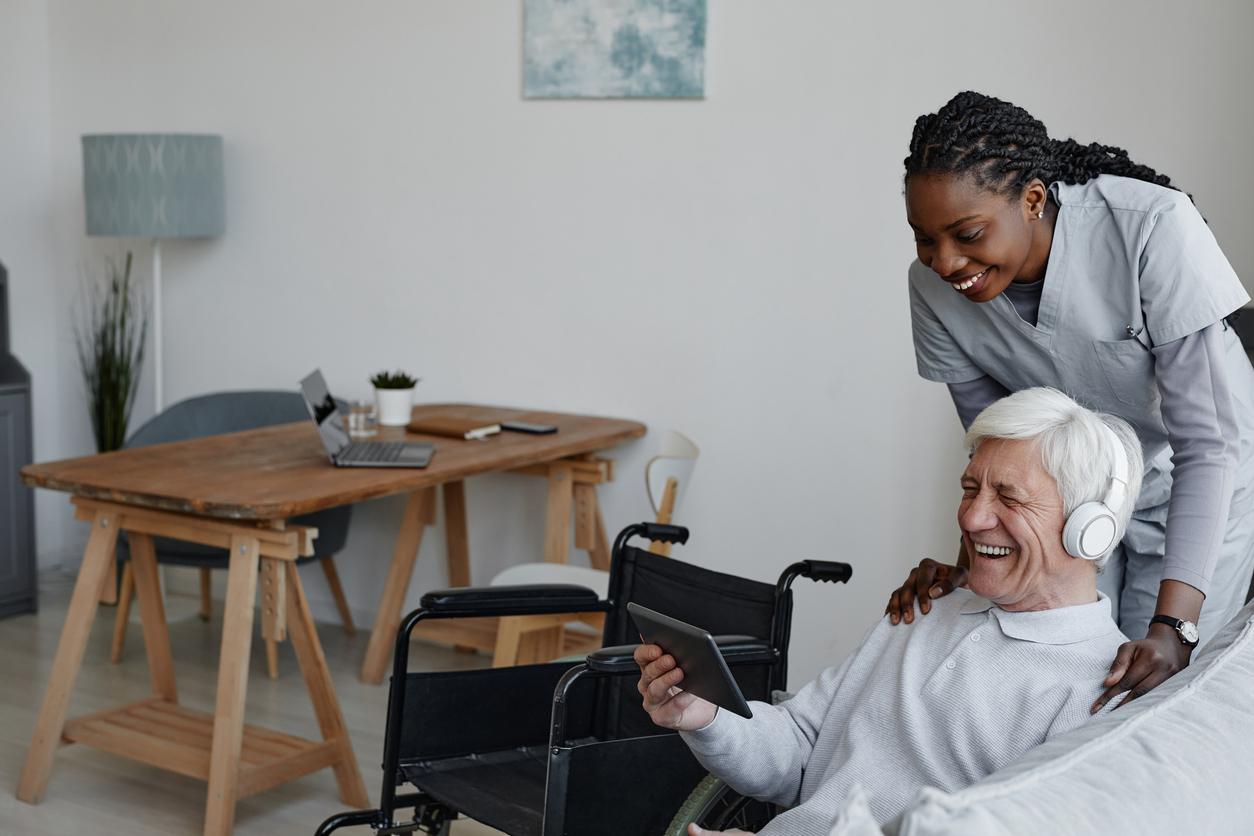More than two million people aged over 60 report being limited in their daily activities. For all these people, remaining in their home is most often their first choice and this is a major societal issue.

- 27.8% of people aged over 65 are dependent.
- Their care requires either placement in a nursing home or a home support system.
- Caregivers are essential players in home support.
The figures speak for themselves: with 28.7% of people over 65 affected by dependency, a proportion constantly increasing in particular due to the aging of the population, the question of their care has become a major social issue. The choice is posed in simple terms: the placement of these dependent elderly people in a nursing home type establishment or keeping them at home.
Difficult choice which does not always correspond to the wishes expressed when everything is going well. “Saying that we prefer to grow old and be accompanied at home is often a response from people in good health”assures Dr Eric Kledjian, geriatrician, who, while he confirms the weak consent prior to institutional placement, puts the subject into perspective: “I often hear people say ‘our parent has come back to life since he was in a nursing home’, the quality of life there is often good, they are real places to live”he explains.
Develop the residential shift
This solution also meets the two recognized limits of home care: when the patient suffers from acute psycho-behavioral disorders or when he is in a situation of social isolation with an absence of a caregiver.
However, due to the limited number of places and also the sometimes prohibitive cost of establishments for dependent people, and as part of a government desire to develop the transition to residential care, home support is an interesting response to many situations of loss of life. ‘autonomy. It is based on a system which, with the always possible support of hospitalization at home when the patient’s condition requires it, brings together home nursing care services (SSIAD) and those called home help which are essentially support for cleaning, meals and comfort care. Since July 2023, these services have benefited from a “single entry point” allowing better coordination.
10 million caregivers
“Recourse to SSIAD requires a medical prescription and allows good care for people with a moderate level of dependence”, explains Jérôme Ferment, SSIAD manager for a mutual group in the Centre-Val de Loire. “This makes it possible to set up a co-constructed project, an alliance on a life project, between the patient, their entourage and health professionals.specifies Dr. Kledjian.
On one condition: the presence of caregivers. An essential point which today concerns nearly 10 million people in France who, every day and at all times, are alongside dependent people. Caregivers who, very often, suffer as much from exhaustion as from recognition and for whom the creation of a status is only beginning to take shape. “They are the primary caregivers, we must recognize the cost of these commitments, society owes them something!”emphasizes Dr. Kledjian.
Funding based on the degree of dependence
But even with this involvement of caregivers, this formula which brings together the support of the patient by nurses and home help services sometimes suffers from a provision of care which is not always there. The reason is the difficulty in finding nurses, a profession currently lacking in attractiveness, and home help, jobs often carried out by independent workers. An improvement was made in 2022 by a change in the pricing of these services. “We moved from a global allocation for home care and help to funding based on the degree of dependency”explains Jérôme Ferment, specifying that this allows better adaptation of the resources devoted to home support.
Another facilitating element for keeping dependent elderly people at home is technological innovations. “Telemedicine is something very important which allows us to avoid resorting to emergency services”insists Dr. Kledjian. “On remote monitoring and remote assistance, there are also things to do”adds Jérôme Ferment, emphasizing the importance of sharing the patient’s file between all professionals involved in home support.
















